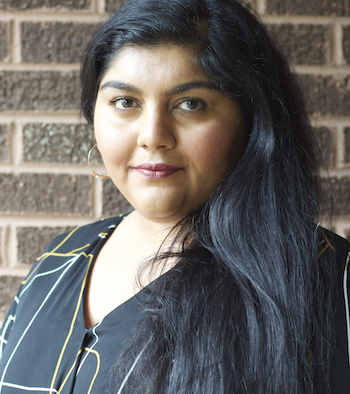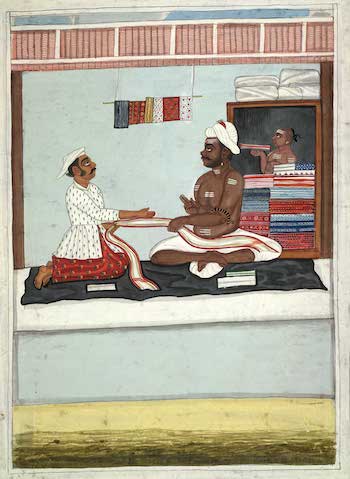
George Mason University’s Deepthi Murali and Mills Kelly were recently awarded a collaborative grant co-funded by National Endowment for the Humanities (NEH) and the United Kingdom’s Arts and Humanities Research Council (AHRC). The NEH/AHRC New Directions for Digital Scholarship in Cultural Institutions grant will provide $49,999 in funding for the project "Subaltern Histories of Global Textiles: Connecting Collections, Expanding Engagement."
“We are very pleased to receive this grant and look forward to working closely with our partners in the U.S. and the UK,” said T. Mills Kelly, director of Roy Rosenzweig Center for History and New Media (RRCHNM) at Mason.
Kelly and Murali are one of two sets of project directors. Meha Priyadarshini of the University of Edinburgh and Avalon Fotheringham of Victoria and Albert Museum in UK make up the second set. The Cooper Hewitt Museum in New York City is also a partner in the grant. The co-directed project includes data collection, analysis, and construction of a prototype website to explore the use of Indian-style textiles in the African diaspora in the 18th and 19th centuries.
“I was absolutely thrilled to receive the grant,” said Murali, who is a postdoctoral research fellow at RRCHNM. “I am still in disbelief that we get to work with two of the largest design museums in the world on this project, as well as with the rich archival material at University of Glasgow.”

Murali says her inspiration for this project stems from a series of conversations that she organized in Spring 2021 on the Material Histories of the Indian Ocean World, hosted by the center. Talks between Murali and co-director Meha Priyadarshini about lesser-known textiles from South Asia and their presence in the Americas in the late 18th and 19th centuries motivated them to craft a digital public history project that visualizes this complex networked history in ways that are accessible to a global public.
Murali said she hopes this project shows how collaborative research is the way forward for the humanities, especially for those interested in transcultural or global studies.

“As the first digital history project from the center/department that is art history-centered and on South Asia specific, it would be wonderful if this kind of collaborative work becomes part of the training for students in the humanities,” said Murali.
Murali said they plan to have at least two graduate students from Mason’s Department of History and Art History on the team and hope to include undergraduates in the research.
“Graduate students working on the project will be working closely with me in identifying textiles and imagery of African diaspora that will be used in the project along with collections research at Cooper-Hewitt,” said Murali. “We hope at least one graduate student will also take part in the design of the digital prototype itself after we gather our research data.”
Murali said a prototype website will be available in 2023.
Murali said they also plan to convene a workshop at Mason this academic year to bring together a diverse group of scholars from textile and material culture historians to scholars of African-American, colonial, and South Asian history.
